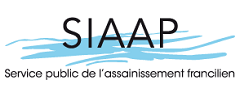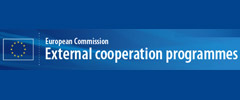WECF presents Green Chemistry at TU Delft
WECF spoke to an auditorium full of technical students and representatives of the chemical industry on Thursday 8 November, at the Technical University of Delft, Netherlands.
19.11.2007 |Chantal van den Bossche
Download the WECF powerpoint presentation here. And the presentation by Arthur D. Little on Creating Green Value.
WECF presented the EU Lisbon economic strategy which aims to make Europe the most competitive economy in the world, of which the main ingredient is human capital. WECF presents several studies of the World Health Organisation and other research institutes which show that a health population is the key element for a strong economy. However, we see several worrying trends in Europe.
Small particle emissions from increased car use are reducing the average life expectancy by 24 to 36 months per life. This is an average for the more industrialized parts of Europe, including the Netherlands, but a specific study shows that children living along busy roads in the Netherlands have a 25% increase of asthma and respiratory diseases. WHO indicates Asthma as a major cause for missing school among European children. Another threat is that of chemical pollution.
Cancer rates are on the increase in all European countries. For example, France has seen an increase of 16% of breast cancer in the last 2 years. As studies in Scandinavia show, the cancer rate is lowest in Finland, which has for a long time had less economic development then the other Scandinavian countries. Economic development and cancer levels seem to be linked, and one reason could be the amount of hazardous chemicals emitted from consumer products.
WECF gives the example of one specific chemical group, plastic softeners, also called phthalates, which have shown to have live long health effects including reproductive defects. Research at the medical university of Copenhagen seem to show that phthalates not only dissolve plastics, but also testis tissue of little baby boys. Unfortunately, it is almost impossible as a consumer, to try and protect one's children from phthalates, which are found a great number of daily products, from body lotions to children's toys.
Therefore the new framework legislation for Chemicals which has entered into force in the European Union is so important, it is called REACH - Registration, Evaluation, Authorizations of Chemicals. REACH has unfortunately been weakened under strong lobby from chemical industry,- key elements such as toxicity testing , low-tonnage, or neuro-toxic chemicals have been omitted - but it remains a mile stone legislation in view of trying to protect public health in the EU.
WECF shows some examples of how the Chemicals lobby has presented its cases. WECF also shows that some chemical substances, which the industry assured could never be substituted, where found to have a great number of alternatives in a recent US research project on innovation. WECF shows a number of substances, such as brominated flame retardants and phthalates, for which safe alternatives have already been developed.
WECF calls on industry to make green chemistry the norm. Green chemistry should not be tokenism, it should not remain an irrelevant part of the market. Down stream chemical producers should insist that the chemical industry substitutes hazardous substances as soon as safe alternatives have been developed.

































